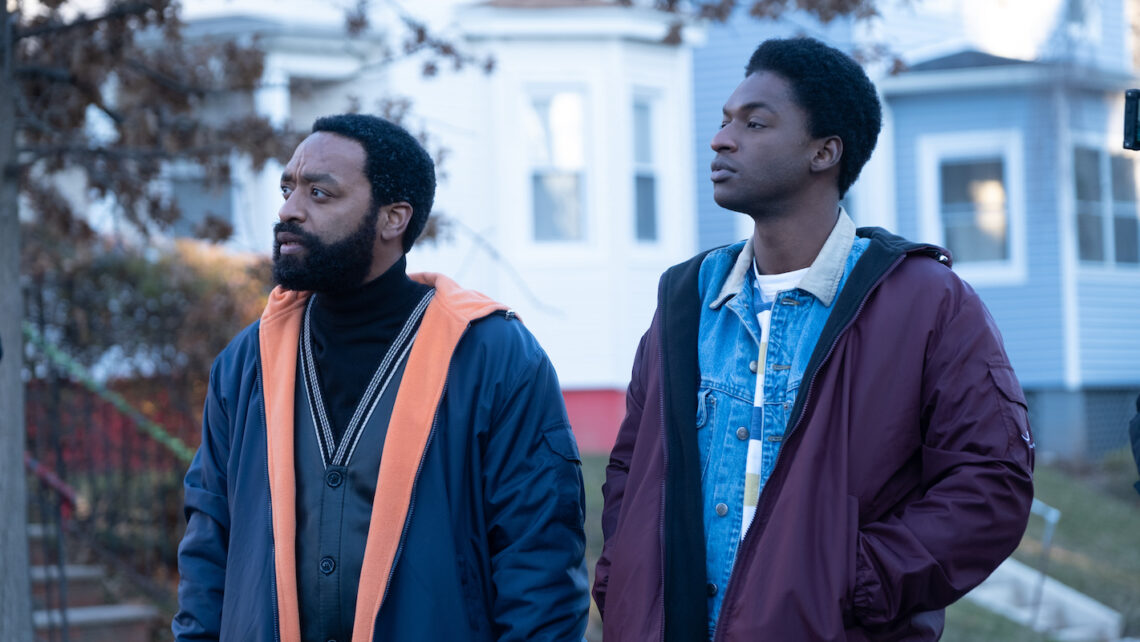A journey through adversity: Chiwetel Ejiofor’s ‘Rob Peace’
In his latest directorial effort, Chiwetel Ejiofor takes a significant leap forward with “Rob Peace”, a film that delves into the life of a gifted young Black student navigating the treacherous waters of economic hardship and systemic injustice. Based on a biography, the movie chronicles Rob’s journey from his childhood to his time at Yale, highlighting his struggles to free his wrongfully convicted father while balancing his academic ambitions.
A tale of intellect and survival
The film opens with a voiceover from Rob (Jay Will), setting the stage for his proclivity for math and science. These narrations fill in the gaps of Ejiofor’s storytelling, providing insights into Rob’s interests and goals that his actions alone might not convey. This narrative choice underscores the challenge of condensing an entire life into a two-hour film. While Rob may not be a historical figure of global renown, Ejiofor’s mission is to confer a sense of grandeur and importance on his seemingly ordinary life.
The weight of familial bonds
A significant aspect of the film is Rob’s relationship with his incarcerated father, played by Ejiofor himself. This dynamic serves as a central theme, with Rob’s father remaining an albatross around his neck, influencing his decisions and life path. The film explores how Rob’s ascent in the fields of molecular biophysics and biochemistry is frequently interrupted by the financial demands of legal appeals for his father’s freedom.
Rob’s background, raised by a single mother (Mary J. Blige) who worked multiple jobs, adds another layer of complexity to his story. His mother and college girlfriend Naya (Camila Cabello) urge him to live for himself, but the moral and narrative demands of being a Black man in America pull him back into a life of struggle and sacrifice.
Breaking the mold
Ejiofor’s film wrestles with the categorization of Rob’s story within the confines of stereotypical Black narratives in mainstream Hollywood. The movie becomes politically charged, pushing back against these boundaries. Rob’s ability to navigate Yale’s social strata is referenced but rarely shown, which sets the stage for the film’s broader thematic exploration.
Most scenes in “Rob Peace” are self-contained, ticking off biopic checklist items rather than building a cohesive narrative. This approach often reduces supporting characters to mere extensions of Rob’s plans, lacking their own emotional depth and unique perspectives. Despite Rob’s aspirations to use his skills for community betterment, the film’s focus on his individual journey prevents it from feeling like a communal experience.
A powerful father-son dynamic
The exception to this is the dynamic between Rob and his father, a role that allows Ejiofor to deliver a heart-wrenching performance. Jay Will matches Ejiofor’s intensity, and together they create powerful dramatic moments. When emotions run high, Ejiofor’s filmmaking is simple and effective, allowing the actors to convey the story through their performances. However, in scenes requiring more precise tonal control or movement, the camera work feels static, as if waiting for the next emotional peak.
A film of highs and missed opportunities
“Rob Peace” skips from one emotional high to the next, maintaining engagement but rarely pausing to fully explore its social implications. The film hints at a deeper intellectual and political identity but never fully unearths it. Despite this, Ejiofor establishes himself as a director with a knack for dramatic storytelling, even if the film stops short of reaching its full potential.
For those interested in exploring the film further, you can watch the trailer for Rob Peace.
Reflections for cinema and TV series enthusiasts
As a cinema enthusiast, “Rob Peace” offers a compelling look at the intersection of personal ambition and systemic barriers. The film’s exploration of Rob’s dual identity as a scientist and a son fighting for his father’s freedom provides a nuanced perspective on the challenges faced by many in similar situations. Ejiofor’s direction, while not flawless, showcases his growth as a filmmaker and his ability to tackle complex narratives.
For TV series enthusiasts, the film’s episodic structure might feel familiar, with each scene serving as a standalone moment rather than a continuous narrative. This approach can be both a strength and a weakness, offering powerful individual scenes but sometimes lacking in overall cohesion.
In-depth analysis and distinctive comments
“Rob Peace” is a film that invites viewers to reflect on the broader societal issues it touches upon. The story of a young Black man striving for academic excellence while grappling with systemic injustice is both timely and timeless. Ejiofor’s portrayal of Rob’s father adds a layer of emotional depth, highlighting the generational impact of incarceration and the sacrifices made by families.
The film’s political undertones are evident, even if not fully explored. Rob’s interactions with his peers at Yale and his efforts to subvert their expectations speak to the broader themes of identity and resilience. However, the film’s focus on Rob’s individual journey sometimes comes at the expense of a more communal narrative, which could have added further depth to the story.
“Rob Peace” is a film that offers a poignant look at the challenges faced by those striving for greatness against all odds. Ejiofor’s direction and the powerful performances by the cast make it a compelling watch, even if it falls short of its full potential. For those interested in exploring the film further, you can watch the trailer for Rob Peace.

 Italian
Italian







